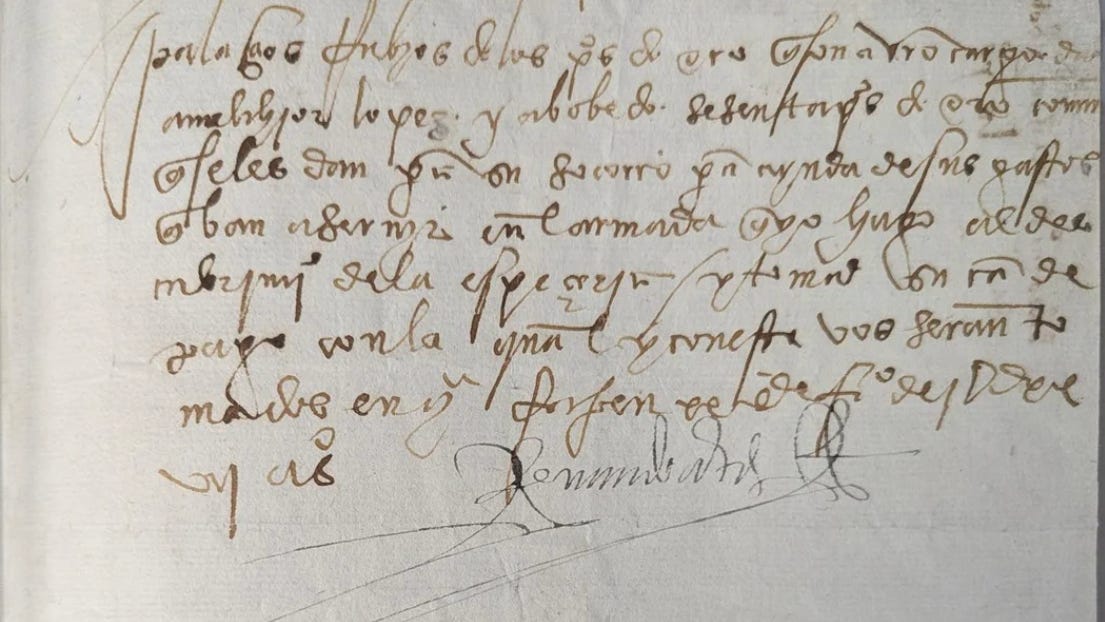A significant 16th-century manuscript page signed by Spanish conquistador Hernán Cortés has been repatriated to Mexico after being stolen decades ago. The Federal Bureau of Investigation (FBI) announced the return of this priceless cultural artifact during a ceremony on August 13, 2023. Special Agent Jessica Dittmer, a member of the FBI’s Art Crime Team, confirmed that the document was signed by Cortés on February 20, 1527, and its theft is believed to have occurred sometime between the 1980s and 1990s.
During the repatriation ceremony, Dittmer emphasized the document’s importance, stating that it represents a valuable piece of history for Mexico. She remarked, “Pieces like this are considered protected cultural property and represent valuable moments in Mexico’s history, so this is something that the Mexicans have in their archives for the purpose of understanding history better.” The FBI has indicated that no one will face charges related to the theft, as the manuscript changed hands multiple times over the years.
This return marks the second time the FBI has facilitated the repatriation of a Cortés document to Mexico. In July 2023, the bureau returned a letter authored by Cortés in April 1527, which detailed his authorization for the purchase of rose sugar.
Collaboration Leads to Recovery
The repatriation was made possible through collaboration between the FBI, the New York City Police Department, the U.S. Department of Justice, and the Mexican government. For many years, Mexico has actively sought the return of cultural artifacts that have been removed from its territory. Among these is a delicate headdress made of iridescent quetzal feathers, believed to have belonged to Aztec Emperor Moctezuma II, which is currently housed in an Austrian museum.
The manuscript page had been listed in Mexico’s General Archive of the Nation prior to its disappearance. In October 1993, during an inventory process involving microfilming, archivists discovered that 15 pages of the manuscript were missing. Dittmer explained that the theft likely occurred between 1985 and 1993, due in part to a wax numbering system that archivists had implemented in the mid-1980s. This system later assisted investigators in locating and authenticating the manuscript.
In 2024, the Mexican government requested assistance from the FBI’s Art Crime Team to locate the missing page. Following further investigation, authorities determined that the document was likely in the United States. The FBI collaborated with its Atlanta Field Office and the U.S. Attorney’s Office for the Southern District of New York to gather records and track the manuscript.
The FBI continues its search for the other missing pages and is encouraging the public to reach out to their New York Field Office with any information concerning the documents.
Historical Significance of the Manuscript
The manuscript page provides valuable insights into the early colonial period of Mexico, outlining payments made in pesos of common gold for supplies necessary for exploration. Dittmer noted that the document offers a detailed account of logistical preparations tied to Cortés’ expedition through what became part of the Spanish Empire, known as New Spain. This territory extended from present-day Washington state to Louisiana, encompassing much of Latin America.
Cortés first arrived in Mexico in 1519, where he formed alliances with local groups opposing the Aztec Empire, ultimately leading to the capture of the Aztec capital of Tenochtitlan—modern-day Mexico City—just two years later. The date on the manuscript, February 20, 1527, is particularly noteworthy as it precedes the appointment of one of Cortés’ top lieutenants as co-governor of the conquered territory. This period marked the establishment of royal and religious institutions that governed the indigenous peoples of Mexico until the War of Independence.
The return of this manuscript page not only restores a piece of Mexico’s cultural heritage but also highlights the ongoing efforts to reclaim historical artifacts that hold profound significance for nations worldwide.
